第108章
"Foreign Counts," he grumbled to me laughingly, one day, "well, I hope they're worth more in Society than they are in the City. A hundred guineas is their price there, and they're not worth that. Who was that American girl that married a Russian Prince only last week? A million dollars was all she gave for him, and she a wholesale boot-maker's daughter into the bargain! Our girls are not half as smart."
But that was before he had seen his future son-in-law. After, he was content enough, and up to the day of the wedding, childishly elated.
Under the Count's tuition he studied with reverential awe the Huescar history. Princes, statesmen, warriors, glittered, golden apples, from the spreading branches of its genealogical tree. Why not again! its attenuated blue sap strengthened with the rich, red blood, brewed by toil and effort in the grim laboratories of the under world. In imagination, old Hasluck saw himself the grandfather of Chancellors, the great-grandfather of Kings.
"I have laid the foundation, you shall raise the edifice," so he told her one evening I was spending with them, caressing her golden hair with his blunt, fat fingers. "I am glad you were not a boy. A boy, in all probability, would have squandered the money, let the name sink back again into the gutter. And even had he been the other sort, he could only have been another business man, keeping where I had left him. You will call your first boy Hasluck, won't you? It must always be the first-born's name. It shall be famous in the world yet, and for something else than mere money.
I began to understand the influences that had gone towards the making--or marring--of Barbara's character. I had never guessed he had cared for anything beyond money and the making of money.
It was, of course, a wedding as ostentatious as possible. Old Hasluck knew how to advertise, and spared neither expense nor labour, with the result that it was the event of the season, at least according to the Society papers. Mrs. Hasluck was the type of woman to have escaped observation, even had the wedding been her own; that she was present at her daughter's, "becomingly dressed in grey veiling spotted white, with an encrustation of mousseline de soie," I learnt the next day from the _Morning Post_. Old Hasluck himself had to be fetched every time he was wanted. At the conclusion of the ceremony, seeking him, I found him sitting on the stairs leading to the crypt.
"Is it over?" he asked. He was mopping his face on a huge handkerchief, and had a small looking-glass in his hand.
"All over," I answered, "they are waiting for you to start."
"I always perspire so when I'm excited," he explained. "Keep me out of it as much as possible."
But the next time I saw him, which was two or three days later, the reaction had set in. He was sitting in his great library, surrounded by books he would no more have thought of disturbing than he would of strumming on the gorgeous grand piano inlaid with silver that ornamented his drawing-room. A change had passed over him. His swelling rotundity, suggestive generally of a bladder inflated to its extremest limits by excess of self-importance, appeared to be shrinking. I put the idea aside as mere fancy at the time, but it was fact; he became a mere bag of bones before he died. He was wearing an old pair of carpet slippers and smoking a short clay pipe.
"Well," I said, "everything went off all right."
"Everybody's gone off all right, so far," he grunted. He was crouching over the fire, though the weather was still warm, one hand spread out towards the blaze. "Now I've got to go off, that's the only thing they're waiting for. Then everything will be in order."
"I don't think they are wanting you to go off," I answered, with a laugh.
"You mean," he answered, "I'm the goose that lays the golden eggs.
Ah, but you see, so many of the eggs break, and so many of them are bad."
"Some of them hatch all right," I replied. The simile was becoming somewhat confused: in conversation similes are apt to.
"If I were to die this week," he said--he paused, completing mental calculations, "I should be worth, roughly speaking, a couple of million. This time next year I may be owing a million."
I sat down opposite to him. "Why run risks?" I suggested. "Surely you have enough. Why not give it up--retire?"
He laughed. "Do you think I haven't said that to myself, lad--sworn I would a dozen times a year? I can't do it; I'm a gambler. It's the earliest thing I can recollect doing, gambling with brace buttons.
There are men, Paul, now dying in the workhouse--men I once knew well;